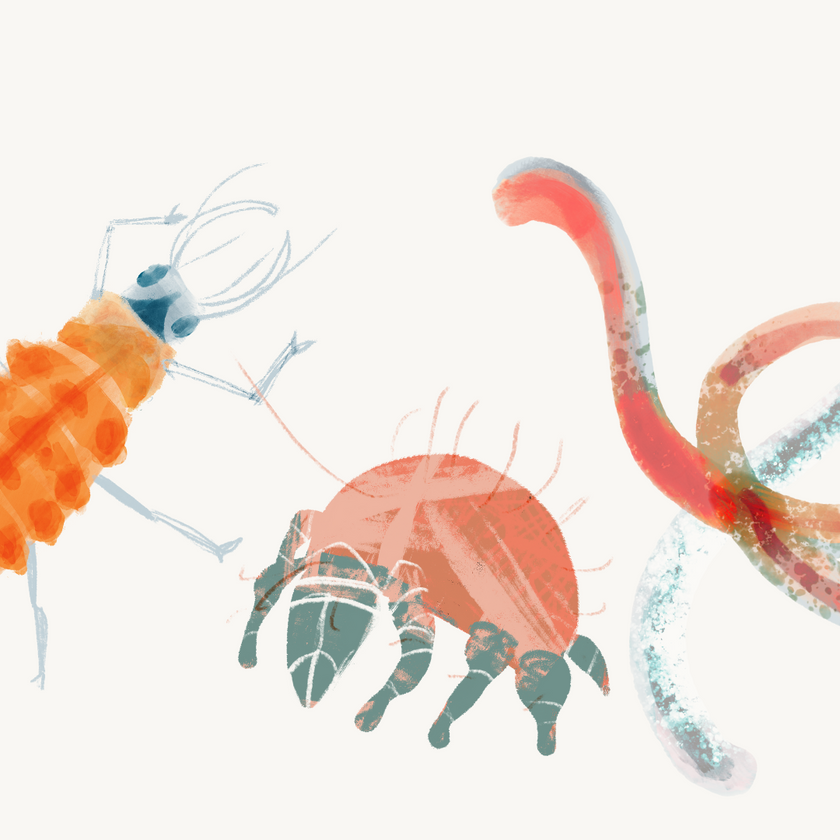
Let's say first that ants are useful animals. They help recycle nutrients in the soil and provide a natural form of pest control by attacking flies, mosquito larvae and even termites. In short, ants perform several ecological roles that are essential for maintaining healthy ecosystems. However, ants can cause a nuisance by, for example, disrupting the terrace or being active in the house. Read here how to prevent or combat an ant plague!
Preventing ants in the house
Nobody wants ants in their house. Use the tips below to prevent ants next to you on the couch:
- Make sure you clean up leftovers and crumbs immediately and store food, especially sweets, tightly closed.
- Seal cracks. A small hole is more than enough for entry. Properly sealing cracks and seams on the inside of your home is a must. Provide any ventilation holes with fine-mesh insect mesh.
- Disrupt the scent trail of ants by interrupting it; they follow fixed routes. You can disrupt the orientation of ants in your home by cleaning thoroughly with soap and removing the scent trail.
Fighting ants in the garden: is this really necessary?
Ants perform a useful role in the garden: they clean up natural waste and aerate the soil by creating tunnels, which allow water and oxygen to flow freely to the roots of the plants. If there is no nuisance, the ants will naturally leave in late summer and return to the same spot the following summer. A place that gives birth is chosen for building the nest on average 6 to 8 years in a row.

Ants occur in the garden
Nowadays everyone wants a safe roof over their heads, even the ants. In the summer the tiles also become nice and warm. No hostel for ants in your garden? Remove those tiles and plant scented plants, such as marigolds, marigolds, lavender or mint. By the way, you also help the bees!
Nematodes against ants
Nematodes are a natural enemy of ants. Ant larvae are vulnerable to nematodes, which cause the ants to move. Frequent repetition will make the lawn or area unattractive for setting up the home. The right nematode against ants is Felti.
Ants protect aphids as allies
If you suddenly find a lot of ants on your roses, for example, be aware of the creatures under the leaves, on the flower heads or on the stems. There is a good chance that aphids are the cause. The ants feed on the sweet honeydew that the aphids excrete after feeding on the sap of plants.

If you want to combat aphids with natural enemies, such as ladybugs or lacewing larvae , first make sure that the ants cannot reach the plants. Otherwise, the ants will clear away the natural enemies. A solution can be to spray the plant thoroughly or tape the beginning of the stem/trunk with double-sided tape.

















































